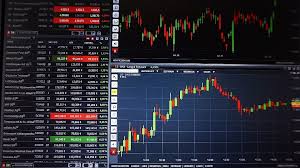
Mastering Forex Trading with Demo Accounts: Your Path to Success
In the vast world of financial trading, forex trading demo account Trading Platform TR provides the necessary tools to help you succeed in the Forex market. Whether you are a beginner looking for a safe space to learn or a seasoned trader wanting to test new strategies, Forex trading demo accounts offer the perfect solution. Today, we will explore what these accounts are, how to set one up, and the benefits they provide to aspiring Forex traders.
What is a Forex Trading Demo Account?
A Forex trading demo account is a simulated trading environment that allows traders to practice their strategies without risking real money. These accounts replicate the live trading experience and are offered by several Forex brokers to help users familiarize themselves with the trading platform and forex market dynamics. With a demo account, traders can execute trades, analyze market trends, and test new strategies using virtual funds.
Why Use a Demo Account?
Using a demo account offers numerous benefits for both novice and experienced traders. Here are some of the key advantages:

- No Financial Risk: The most significant advantage of a demo account is the lack of financial risk. Traders can hone their skills, test strategies, and learn from their mistakes without the fear of losing real money.
- Understanding the Trading Platform: Every trading platform has its unique features and tools. A demo account allows traders to familiarize themselves with the interface, which can reduce the learning curve when transitioning to live trading.
- Market Observation: Demo accounts provide an opportunity to observe market behavior in real-time. Traders can analyze price movements, volume, and news events to develop a deeper understanding of market dynamics.
- Strategy Testing: A demo account is an excellent platform for testing various trading strategies. Whether you are inclined towards scalping, day trading, or swing trading, you can implement your strategies and evaluate their effectiveness.
- Emotional Management: Trading involves a significant emotional component. While demo trading doesn’t completely replicate the pressure of live trading, it allows traders to begin developing their emotional management skills in a low-stakes environment.
How to Set Up a Demo Account
Setting up a demo account is a straightforward process. Here are the steps to get started:
- Choose a Forex Broker: Research various Forex brokers to find one that meets your trading needs. Look for brokers that offer reliable platforms, good customer support, and favorable trading conditions.
- Sign Up for a Demo Account: Once you’ve selected a broker, visit their website and sign up for a demo account. You will typically need to provide some basic information, such as your name, email address, and phone number.
- Download the Trading Platform: After registration, you may need to download the broker’s trading platform, such as MetaTrader 4 or 5. Follow the broker’s instructions for installation.
- Start Trading: Once the platform is set up, log in to your demo account and begin trading! You can explore different currency pairs, apply indicators, and implement your trading strategies.
Tips for Effective Demo Trading
While demo accounts provide a risk-free environment for trading, it’s essential to approach them with the same seriousness as live trading. Here are some tips to make the most out of your demo trading experience:

- Set Clear Goals: Define what you aim to achieve while using the demo account. Whether it’s mastering a specific strategy or improving your trade execution speed, having clear goals will help keep your training focused.
- Practice Discipline: Treat your demo trading like real trading. Stick to your trading plan, manage your risk, and don’t let your emotions drive your decisions.
- Keep a Trading Journal: Document your trades, strategies, and outcomes in a trading journal. This record will help you reflect on your performance and refine your skills over time.
- Transfer Skills to Live Trading: Once you feel confident in your abilities, start transitioning to a live account. Apply the skills and strategies you’ve learned, but remain mindful of the psychological pressures of live trading.
Common Mistakes to Avoid
Even though demo trading is a low-risk environment, traders can still fall into certain traps. Here are some common mistakes to avoid:
- Overtrading: The absence of real money can lead to overtrading behaviors. Be careful not to treat the demo account as an unlimited resource; establish strict trading limits.
- Neglecting Risk Management: Some traders may overlook essential risk management principles in a demo account. Practice setting stop-loss and take-profit orders to prepare for live trading.
- Ignoring Market Conditions: Just because a strategy works well in the demo environment doesn’t mean it will work perfectly in live trading. Be aware of market conditions and adapt your strategies accordingly.
Conclusion
Forex trading demo accounts represent an invaluable resource for traders at all levels. They provide a safe and effective way to learn, practice, and fine-tune trading skills, ultimately preparing you for real-world trading challenges. By utilizing a demo account wisely, setting clear goals, and documenting your progress, you can significantly improve your chances of success in the competitive forex market.


Write a comment: